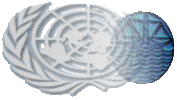 A SOPAC-organised workshop, supported by technical partners and funded by AusAID, is taking place in Sydney to help Pacific Island countries develop their Extended Continental Shelf (ECS) submissions to the United Nations.
A SOPAC-organised workshop, supported by technical partners and funded by AusAID, is taking place in Sydney to help Pacific Island countries develop their Extended Continental Shelf (ECS) submissions to the United Nations.
Under the United Nations Convention on the Law of the Sea, an island country’s Exclusive Economic Zone (EEZ) extends 200 nautical miles from its coastal baselines, which is calculated from the lowest tide levels. Article 76 of the Convention sets out criteria upon which an island country may establish an Extended Continental Shelf that extends beyond the 200 nautical mile limit.
Eight Pacific Island countries have lodged submissions for Extended Continental Shelf claims to the United Nations Commission on Limits of the Continental Shelf (UNCLCS). A further two are working towards their respective deadlines for submissions in 2013.
According to Arthur Webb, the Manager of the Ocean and Islands Programme at SOPAC, “Many island countries still have significant work to complete and update their lodged submissions. In several cases there is an important need for additional seafloor geological or depth of ocean data to support their existing submissions.”
The two-week long Sydney workshop, conducted by SOPAC with its technical partners Geoscience Australia, the Commonwealth Secretariat and UNEP SHELF Programme and 10 Pacific Island Country boundary teams is a continuation of a series of training workshops carried out since 2007.
Webb states “If countries are successful in their Extended Continental Shelf claims the sovereign rights of the State will only extend to the seabed and resources there-in. It will not include resources such as fish in the ocean above. However, given the recent resurgence in deep sea mineral exploration, and other seafloor resources, conservation and biodiversity initiatives, the Pacific island countries still have much to gain by pursuing these claims.”
The Pacific Island countries taking part in the workshop have requested the assistance of SOPAC and its technical partners in the preparation of their coastal baselines based upon sound technical and scientific data.
SOPAC provides assistance to 19 island countries in the Pacific region through applied geoscience and technology.
CAPTION: United Nations Law of the Sea Logo





